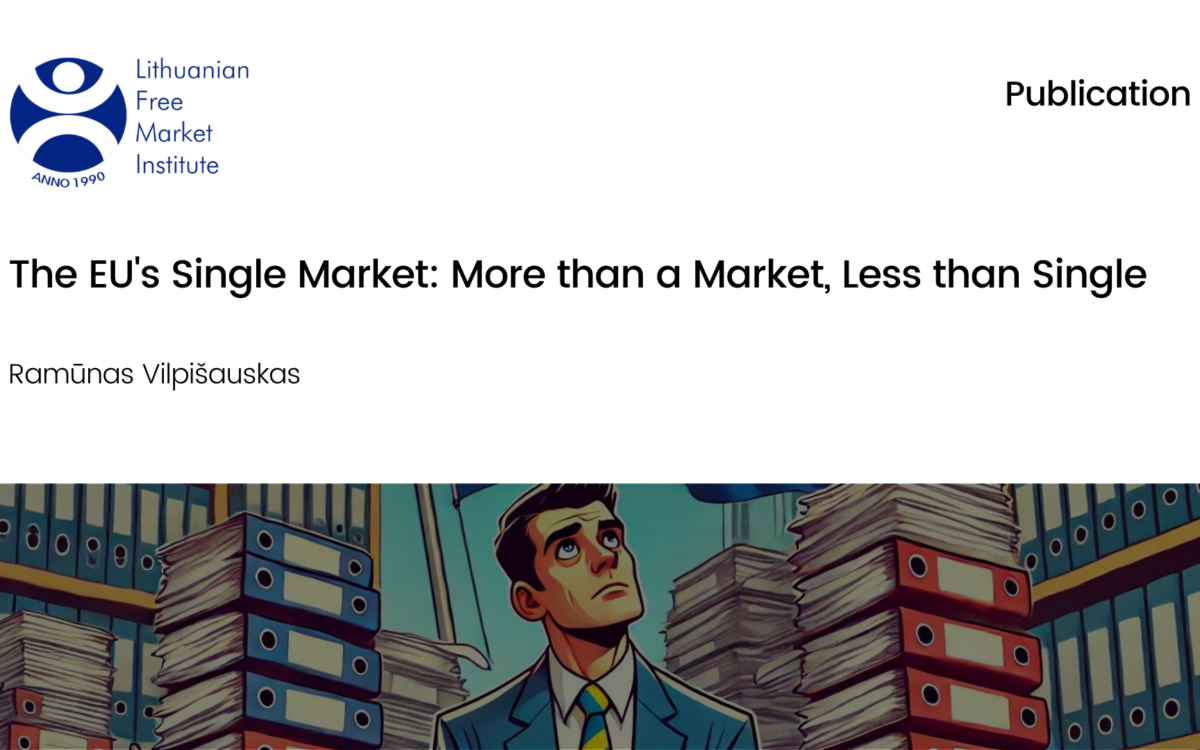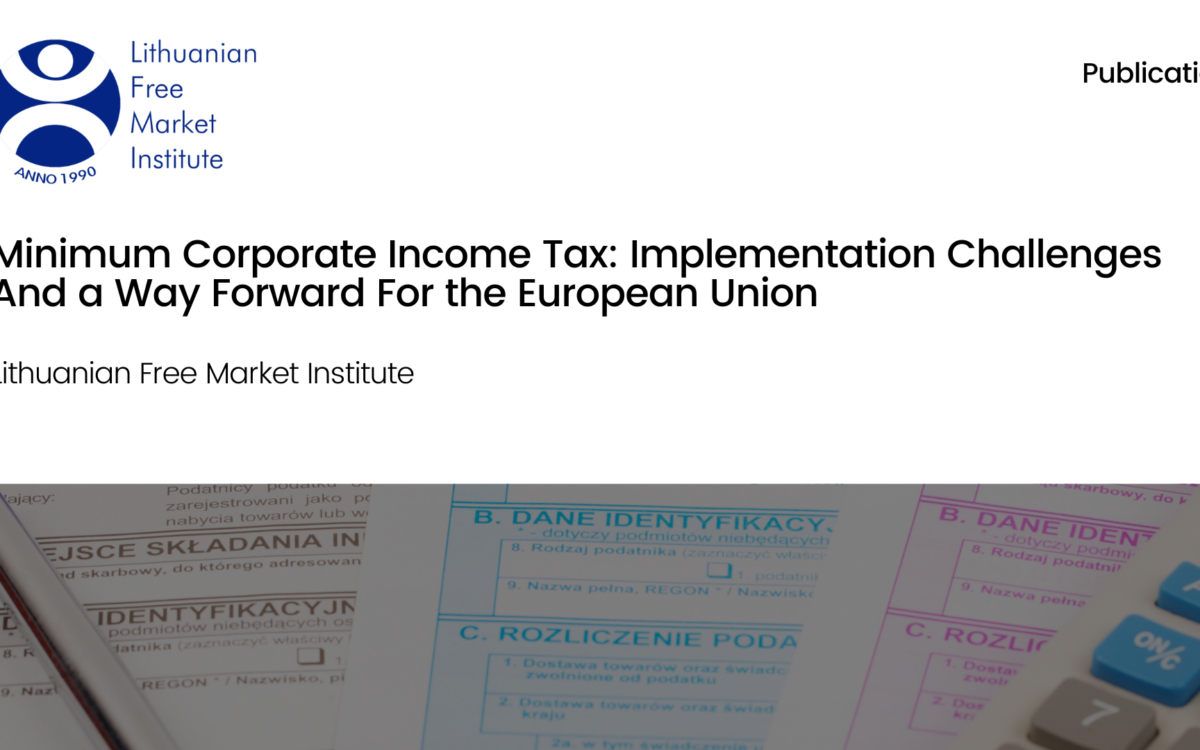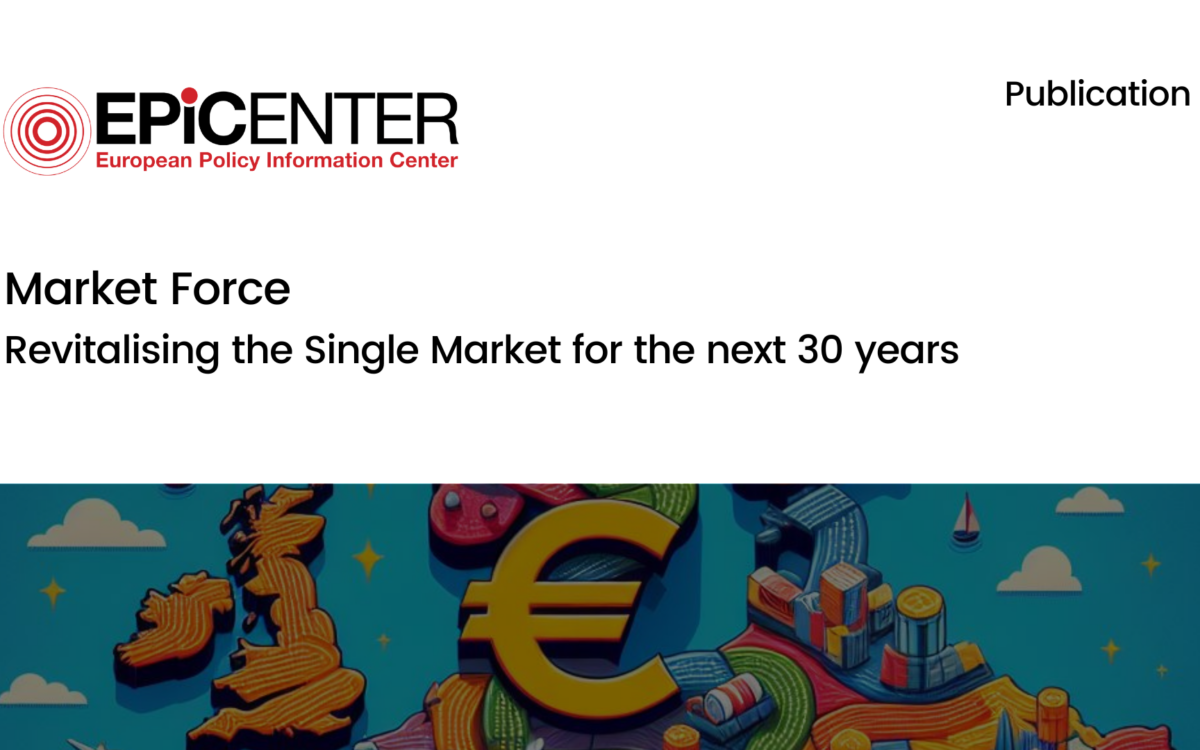Trade in a Time of Tariffs

Trade in a Time of Tariffs
Carlo Stagnaro, Christian Năsulea, Eryk Ziędalski, Constantinos Saravakos, Diana Năsulea, Radu Nechita, William Hongsong Wang // 12 February 2025
The EPICENTER report, Trade in a Time of Tariffs, examines the European Union’s evolving trade landscape amid rising global protectionism and geopolitical uncertainty. As the EU faces increasing regulatory barriers, declining trade liberalisation, and growing competition from China and the United States, its traditional role as a global trade leader is under strain. The report presents a roadmap for reinforcing Europe’s market-driven trade strategy and ensuring long-term economic resilience.
The report highlights the EU’s need to balance its commitment to free trade with emerging protectionist pressures, including industrial policy shifts, digital sovereignty initiatives, and the introduction of trade barriers under the Green Deal framework. It also assesses the impact of new trade agreements, such as those with Taiwan and Mercosur, and evaluates the risks of dependency in strategic sectors like semiconductors and electric vehicles.
Key findings of the report include:
- The EU’s share of global GDP is projected to decline, necessitating a stronger focus on market-driven trade policies.
- The Digital Markets Act, Digital Services Act, and European Chips Act risk increasing regulatory burdens that could stifle innovation and competitiveness.
- The Carbon Border Adjustment Mechanism (CBAM) aims to prevent carbon leakage but could raise costs for EU exporters and disrupt trade relations.
- Despite rising geopolitical tensions, trade flows with China remain strong, underscoring the need for a diversified trade strategy.
- Regulatory complexity and excessive compliance costs hinder the competitiveness of European businesses, particularly SMEs.
The report calls for an EU trade policy that prioritises open markets, reduces bureaucratic barriers, and fosters international cooperation to counteract the risks of economic fragmentation. It advocates for a renewed push for free trade agreements, a recalibration of digital and green policies to minimise trade distortions, and a market-oriented approach that strengthens Europe’s position in global supply chains.
Download or share this publication
View the PDF
EPICENTER publications and contributions from our member think tanks are designed to promote the discussion of economic issues and the role of markets in solving economic and social problems. As with all EPICENTER publications, the views expressed here are those of the author and not EPICENTER or its member think tanks (which have no corporate view).



